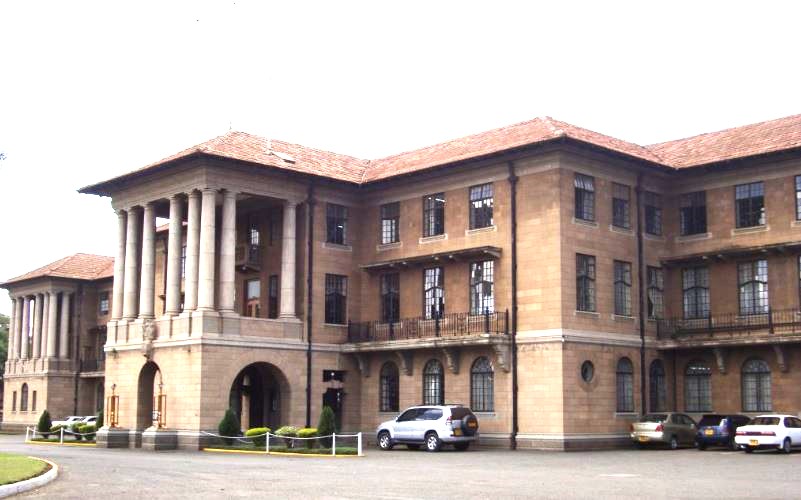More than 200 former employees of the Kenya Railways Corporation (KRC), who were retrenched 27 years ago, are set to receive KSh 100 million in compensation. This follows a ruling by the Court of Appeal, which dismissed an appeal by KRC seeking to overturn a High Court decision awarding the payment to the retrenched employees.
In a landmark judgment, Justices Jessie Lesiit, Ngenye Macharia, and Francis Tuiyott ruled that the corporation was fully aware of the terms of the Collective Bargaining Agreement (CBA) it had negotiated with the claimants during its execution in 1998.
The CBA included salary increments and a provision allowing employees to retain railway staff housing until their dues were fully settled. However, KRC subsequently transferred the houses to the Kenya Railways Staff Retirement Benefits Scheme in what the court found to be an attempt to evade its obligations.
The appeal was against a 2015 ruling by Employment and Labour Relations Court (ELRC) Judge Maureen Onyango in a case filed by George Ochieng Ododa and 179 others against Kenya Railways Corporation and Kenya Railways Retirement Benefits Scheme. The ELRC found the corporation guilty of withholding salaries and pension dues amounting to KSh 100 million and ordered it to compensate the employees.
“It was common ground that the CBA was to last for one year, from 1 January to 31 December 1998. When it became clear that the appellant was unwilling to honour the terms of the CBA, some of the respondents filed a suit at the Nakuru High Court on 22 September 1998, and another in Nairobi when they were threatened with eviction before being settled,” the judgment stated.
The Court of Appeal noted that the issues litigated in the Nakuru case were substantially different from those raised before the ELRC and that some of the parties in the ELRC suit had not been involved in the Nakuru proceedings.
In its final ruling, the appellate court stated: “We have endeavoured to address the concerns raised in this appeal. Upon re-evaluation of the evidence tendered before the trial court, we reach the inescapable conclusion that the appeal is unmeritorious and is hereby dismissed, with costs awarded to the respondents.”
KRC had sought to challenge the allegations made by George Ogonda and 216 other former employees who continue to reside in the railway houses. The corporation had argued that the houses were owned by the Retirement Benefits Scheme, which had not employed the claimants and therefore had no obligation to settle any claims.
KRC’s representative, Nicholas Kikuvi, told the court that the corporation had only transferred property to the scheme and had not assigned any financial liability to it. He further noted that as of 2019, rental income from the properties had accumulated to KSh 56 million, contradicting the respondents’ assertion that they were occupying the houses free of charge.
The ELRC had previously granted an order preventing KRC from interfering with the tenant’s quiet enjoyment of the houses, allowing them to remain in the properties until their dues were fully paid.
The respondents argued that they had never entered into an agreement with the Kenya Railways Retirement Benefits Scheme and that the corporation could not claim ownership of the houses. They maintained that, under the terms of the CBA, they were entitled to remain in the houses until their payments were settled.
The retirees were aggrieved that, despite the CBA stipulating a 12-month settlement period from 1 January to 31 December 1998, KRC had failed to honour its commitments. Since 2009, they have remained in the railway premises under an interim court order preventing KRC from evicting them until their dues are fully paid.
They had petitioned the court to uphold the terms of the CBA and to compel KRC to pay salary arrears for 1998, pension dues from 1 January 1998 to date, severance pay, gratuity, 50% of their monthly salaries from the date of the CBA’s registration, and leave allowances for employees in job group B.
In its defence, KRC argued that the claims had been previously litigated and dismissed by the Nakuru High Court for being incompetent. It maintained that all retrenchment packages had been fully settled and that the continued occupation of staff quarters by the former employees was in violation of the agreement, as they were expected to vacate upon receiving their benefits. With the Court of Appeal upholding the ELRC ruling, KRC will now be required to pay the long-outstanding dues to its former employees.





